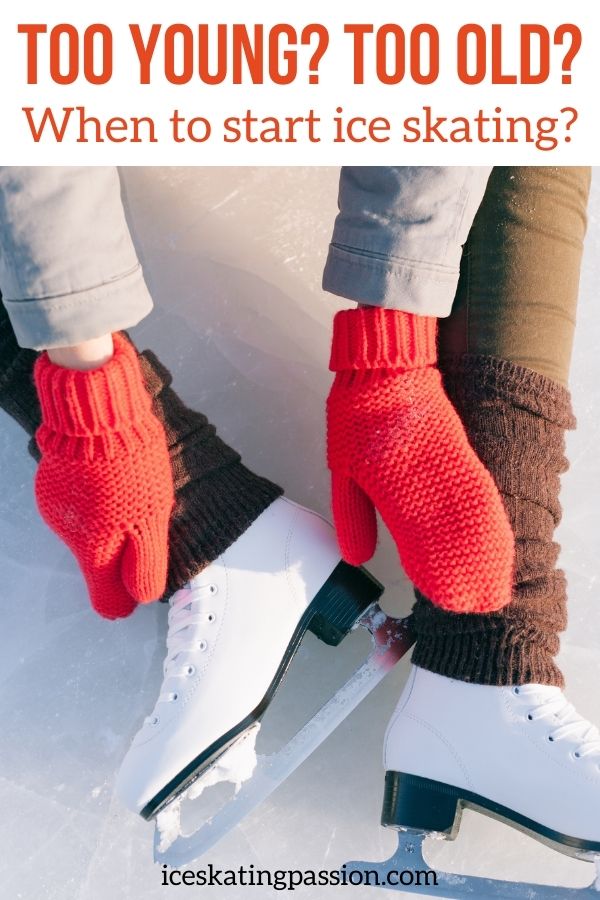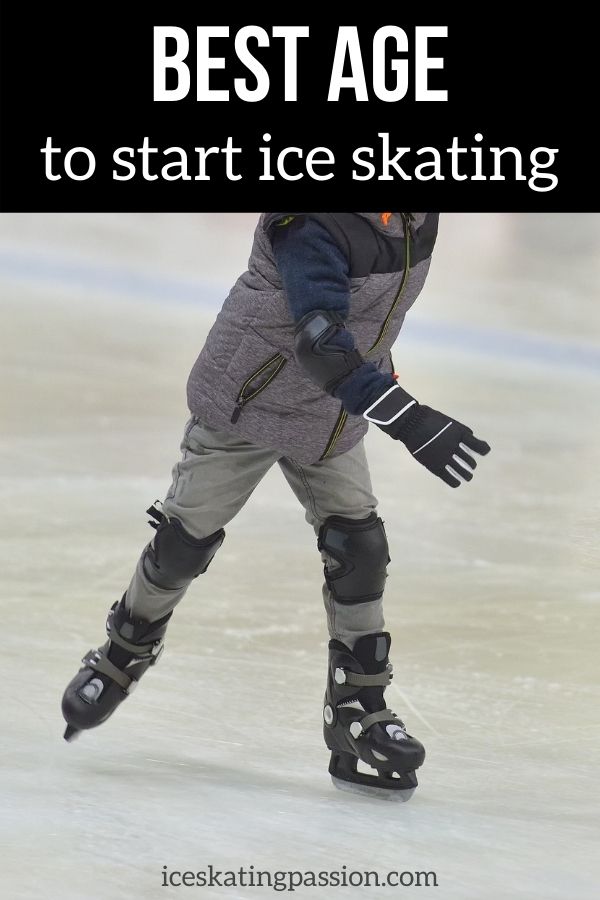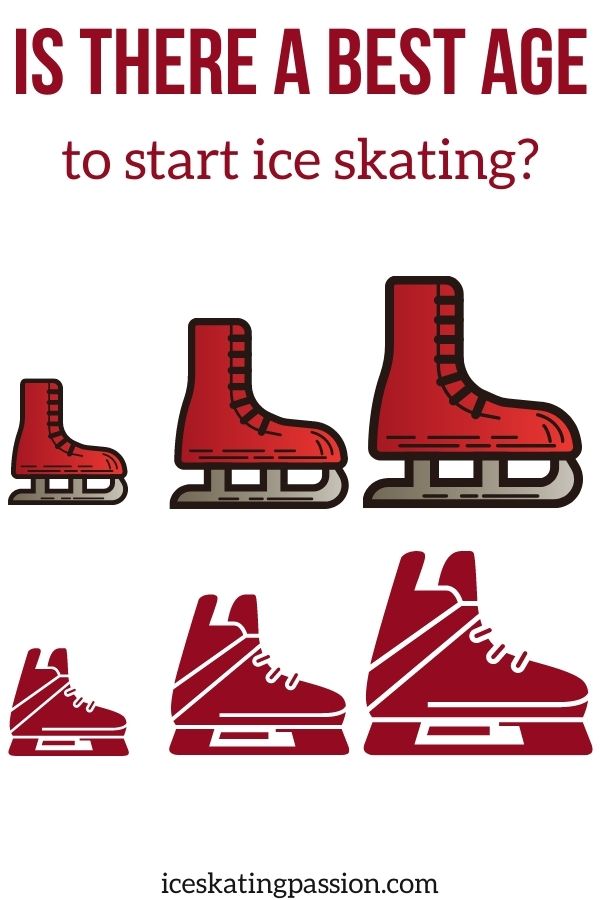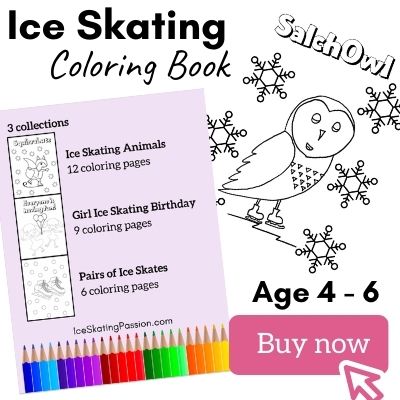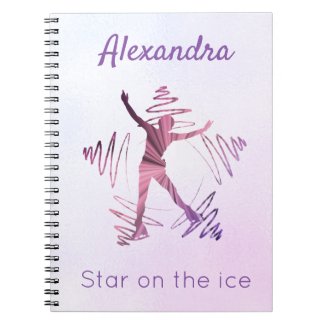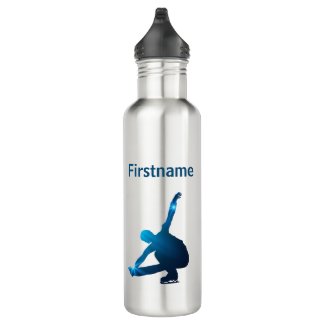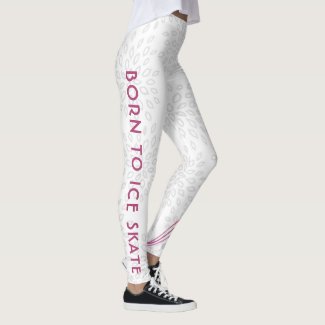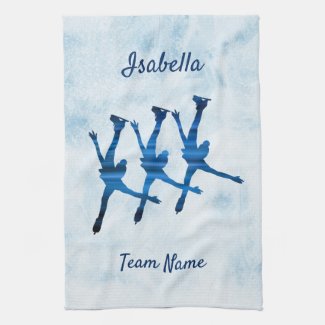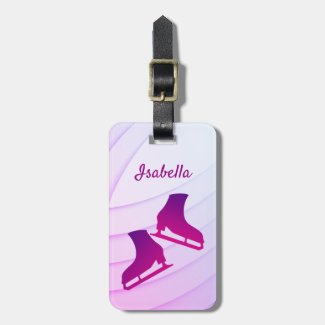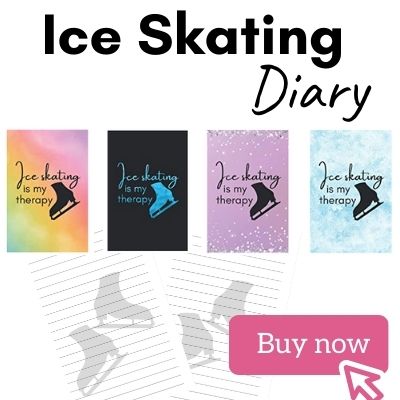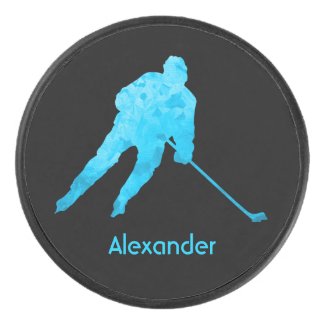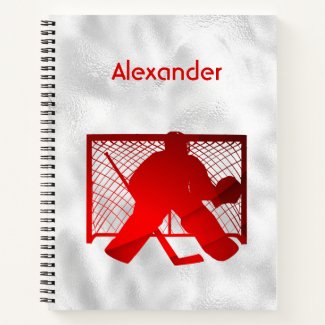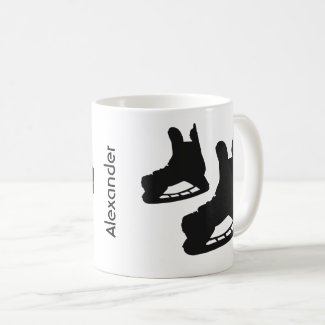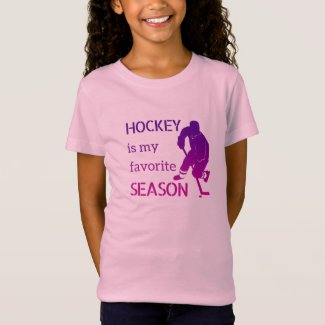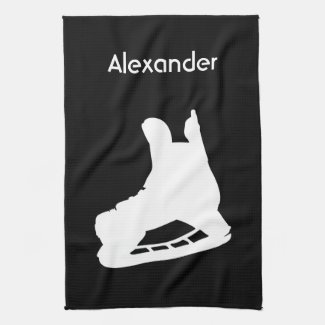Is there a best age to start ice skating? Are you wondering if your kid is too young or you are too old to start ice skating? In the article below, I will try answering all your questions about age for ice skating. But remember, the most important is to have fun!
This article may contain affiliate Links (info on the Disclosure page). If you purchase using my link, I get a commission at no extra cost to you.
Too young? Best age for ice skating - How young to start?
Can a 2-year-old ice skate? How young can you start ice skating?
Technically speaking, any kid who can walk can skate too!
However, if balance is already not good on the ground, if won't improve on skates.
You know your child best - his/her abilities and temperament.
There is NO correct age to introduce a child to the beautiful experience of skating on the ice. See my article about ice skating with a toddler.
However, if you want your child to take lessons, it is another question...
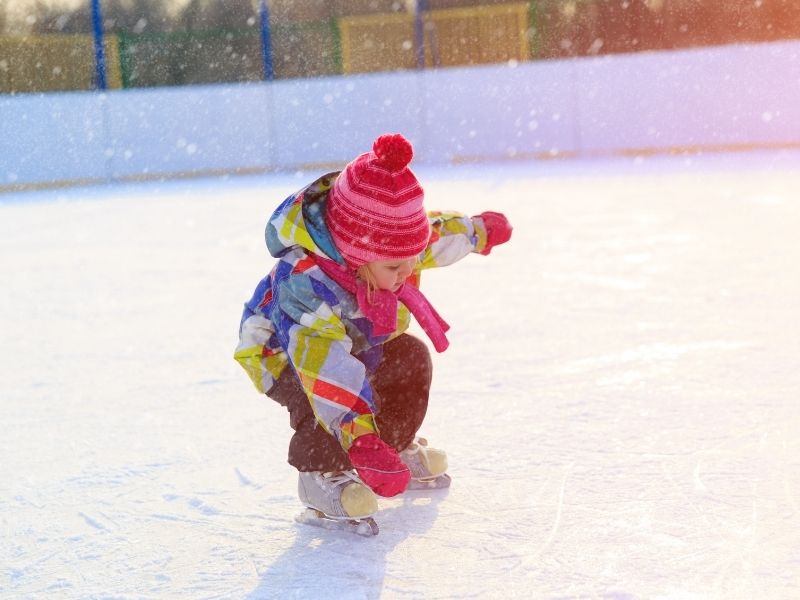
Criteria for a toddler to be able to take ice skating lessons
The child -
- Should display sufficient maturity and attentive listening. Only then, can he/she follow the instructor - this is why clubs emphasize upon a minimum age for children. They should prove to be attentive in group classes.
- Should demonstrate appropriate muscle strength and flexibility.
- Should show no separation anxiety. In general, it disappears after the age of four. Therefore, if your kid is comfortable with other adults, everything should be fine.
- Should be able to balance in regular shoes, and on skates.
Ice skating clubs normally don't take children under the age of 4.
How to see if your child is not ready
Every child develops differently. They will show interest for some activities early and for others it will be later.
The best thing is not to compare with other kids!
For example, I only started walking at the age of 18 months old. People were telling my parents that I would not do any sports... haha
Psychologists suggest that children love to move around on their own. Therefore, they express joy in improvement of fine motor skills. They love to crawl, stand up, walk, run, skate, and ride a bicycle. These activities make them feel in control of their environments.
A toddler may be anywhere between 2 and 4, to jump on to the ice. It all depends upon the temperament
If you think, your child might be ready, just try. Don't buy skates yet, use the rental for the first time.
- Don't show fear, make it a fun game, like walking like penguins
- If your child is crying the whole time, he/she is not ready. Try again in 6 months time
- Don't run when they fall - most of the time it does not hurt, and they must understand it is part of the game
If your kid is not yet comfortable on the ice, you can start with a roller rink using rollers with 4 wheels - there is a gliding impression but more balance.
Too old? - Best age to start ice skating
Best age to ice skating for fun and pleasure
There is no age barrier for skating. You may try the exhilarating sport during childhood, adolescence, or when you are an adult. You can even try to master the techniques of figure skating.
Just ensure that your goals are realistic. Also, ensure that you have plenty of fun. You might even try to enter competitions.
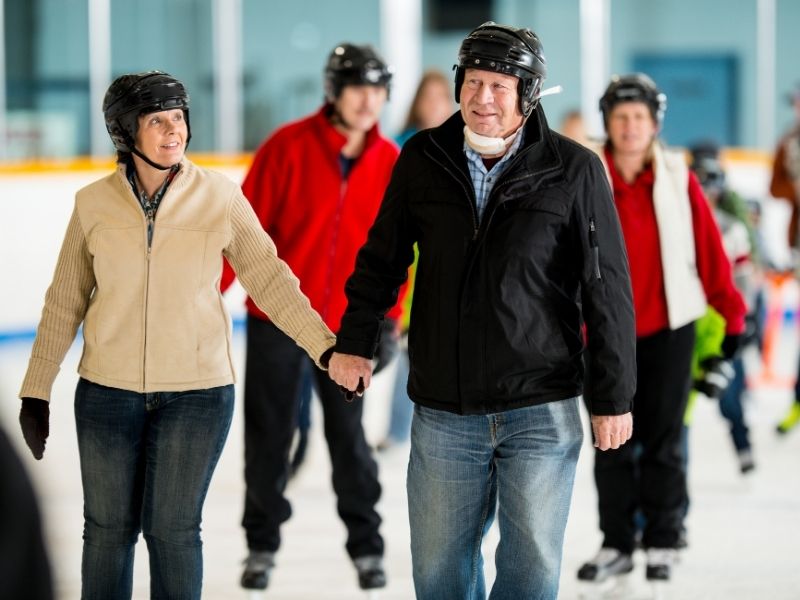
To reach an Olympic level - figure skating
Parents’ Olympic Dreams
If you are looking for the best age to start your child at figure skating because you want him/her to become an Olympic champion. This is not a website for you.
I believe parents should have children try sports and push them a little when they slack, but the Olympic dream should be coming from the child. And he/she can’t know that at 3 years old…
Your child must nurture the same dream. Otherwise, you will be pushing him. This can destroy his/her enjoyment in the sport.
Children’s Olympic Dreams
Now if your child is a little older and is talking about his/her Olympics dreams, you might be wondering if it is too late.
It is true that the training of champions normally starts between the ages of 4 and 6 when the child can pick things up quickly and built automatisms.
However, some champions have started later:
- Sasha Cohen (USA) first skated only at the age of 7 and became serious about it only later. She was the silver medalist at the 2006 Winter Olympics.
- Johnny Weir began (USA) skating at the age of 12. He gained fifth place at the 2006 Olympics and sixth place in the 2010 Games.
- Evan Lysacek (USA) won the 2010 Winter Olympics. He had begun skating at the age of 8.
- Guillaume Cizeron (France) won the silver medal for Ice Dancing at the 2018 Games. He began skating at the age of 8.
Can I start Ice skating at 13, 14…?
Late beginners find it harder to become professionals. Furthermore, they have to work harder. To illustrate, suppose the learner was 14/15 years of age. This skater would find it easy to tackle the beginner levels. However, he/she might find it difficult to master figure skating. The body does not find it easy to learn axels or jump. The body is taller, older and difficult to control. And confidence levels may not be too high.
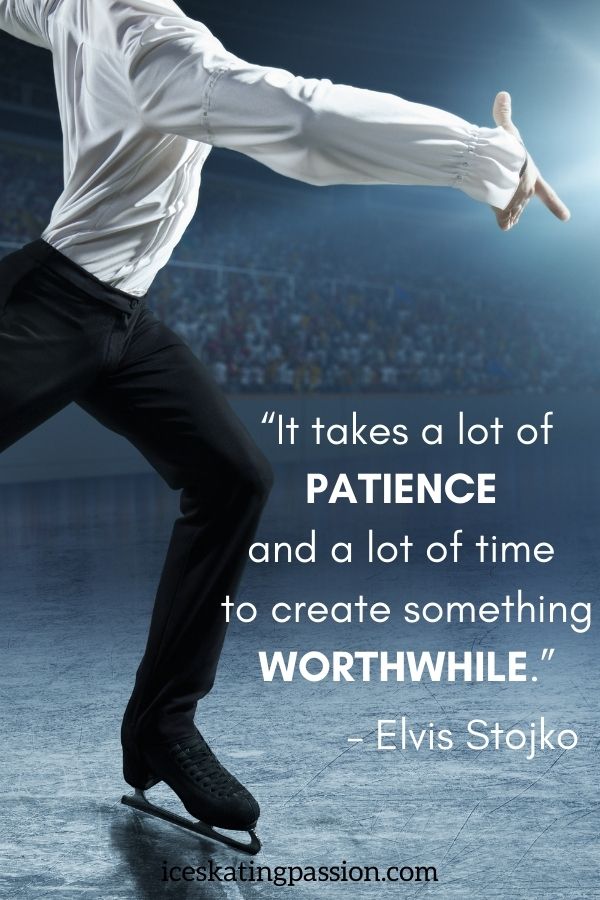
To play interesting hockey games
Hockey is a game where you have much older players than the skaters in figure skating. In 2017, the average age of players in the NHL was 27,4 years old (source).
Physical does have an impact but much less than for figure skating. Maturity and skills are essentials.
If you are in middle or high school, it’s not too late to start playing hockey. If you’re willing to work hard and develop your skills, you can play hockey long-term. There is a possibility to join the NHL without having played hockey your entire life. However, as the sports progress, it is becoming more difficult.
But you can play great games without being in the NHL!
For example:
- Yvon Lambert (Canada) - started skating at 13
- Jovanovski (Canada) - started skating at the age of 11/12
- Rod Langway (USA) - started playing hockey at 13
- Mike Komisarek (USA) started at 10
- Cam Johnson (USA) - seems to have started at 10
- Vadim Vasjonkin (Collegial hockey originally form Estonia) - started at 10
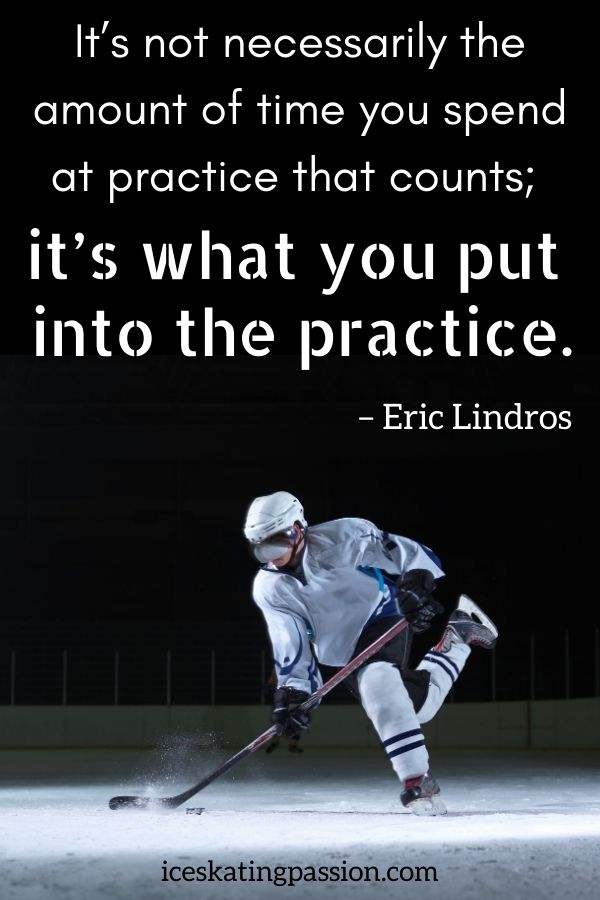
Why start ice skating - benefits
At any age ice skating has a lot of benefits, even if you don't make it to the Olympics or the NHL! Always focus on the process of development rather than the end goal.
First of all, there is a pleasure of gliding on the ice. There is no better feeling in my opinion!
Then you have the health benefits of ice skating (learn more on my article about them):
- It improves balances
- It increases joints flexibility
- It boots Cardio Health
- It builds muscles and improves postures
- It increases motor coordination
- It helps with weight management
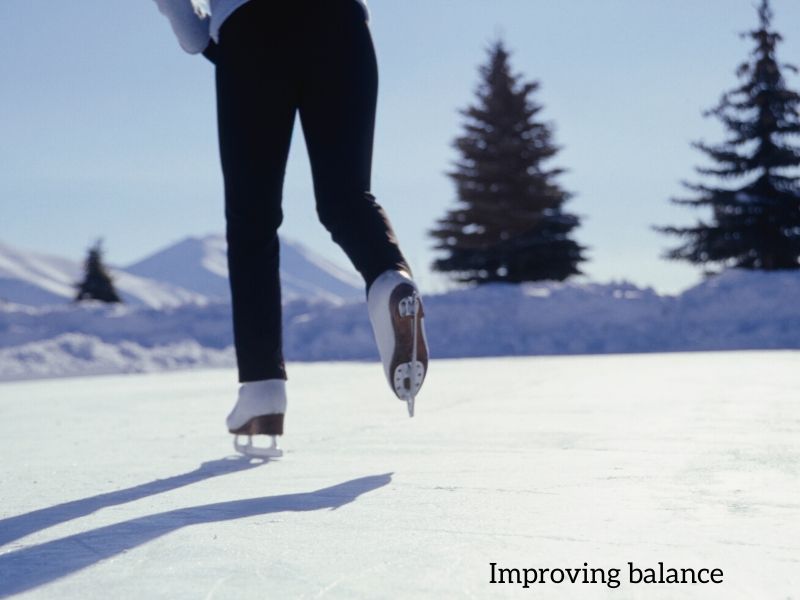
Plus, there are also some great lessons to learn from figure skating or hockey playing, that will help anyone in their everyday lives:
- The spirit to get back up after falling (learn more on my article about the life lessons from figure skating)
- Trusting your instinct
- Resilience
- Consistency
- Overcoming difficulties
- Teamwork in hockey
- Communication if skating in a team - hockey, synchronized skating, pairs...
Is ice skating dangerous for beginners?
If you are wondering if your kid is too young to ice skate or if your are too old, one of the worries may be that ice skating could be dangerous.
Let me reassure you, ice skating for beginners, when done correctly is not a dangerous sport.
However you have to do it in good conditions:
- A good pair of skates - strong support of the ankle
- Properly lacing your skate
- Warming-up
- Wearing good socks (thin)
- Wearing protective gear
- Hydrating
- ...
Learn more about my ice skating tips for beginners to avoid injuries.
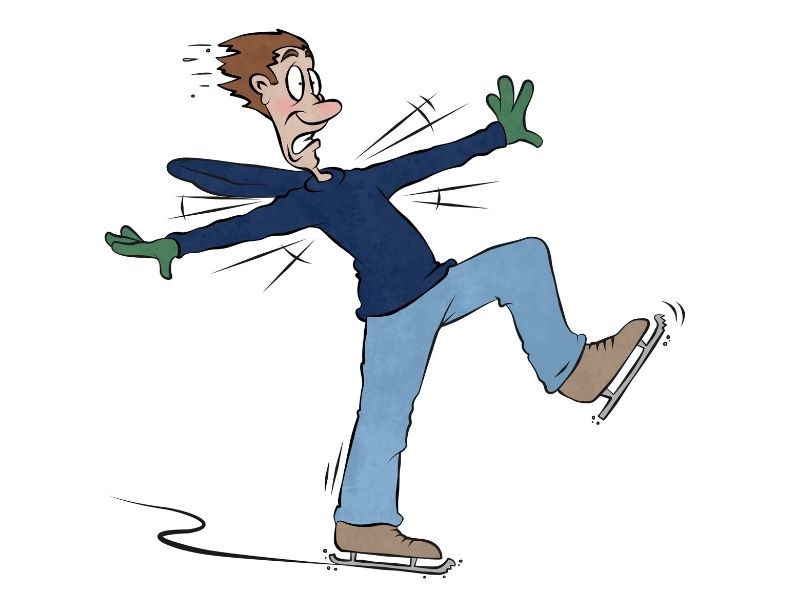
How to start ice skating
Should you teach your kid to skate?
Are you acquainted with the skill of skating? If yes, teach your child to skate too. If not, do not attempt to do so. Instead, both of you might sign up for some classes. At least, you will understand the basics.
One of them involves falling down and getting back up. You must not hurt yourself while doing so. This way, you will gain confidence. Do not use chairs or other types of supporting equipment. Otherwise, you will lean forward while skating. Unless the body is straight, balancing will be difficult. An erect figure ensures even distribution of the weight across the blade.
If an experienced skater moves alongside the beginner, he/she should hold the beginner’s arms from underneath, not from the front and not from the side.
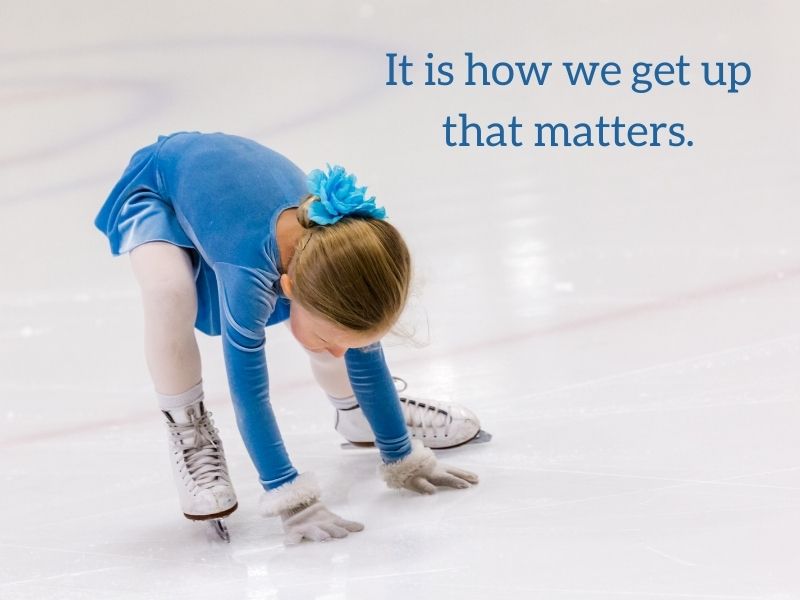
Which skates are best to start?
If you have already chosen your sport, then go with those skates.
However, if you just want to start ice skating, figure skates are considered easier to learn. They possess longer blades. Therefore, they help in maintaining balance. Purchase the correct fit. Wearing larger sizes is a big No-No.
Check out:
- my article to choose the best skates for beginners adults and teens
- or my article about the best toddler ice skates
- or for little hockey players - the best hockey skates for kids
- or for little girls, the best girl ice skates
Other pieces of equipment to have
- Gloves are essential. Hands need protection during falls. They land on a cold, hard and slippery surface. Pushing himself/herself up will be difficult. Do not go overboard by purchasing ice hockey gloves. Even small hands do not really need the extra padding.
- A helmet may be compulsory with some clubs. You do not want your child to crack his/her head during all those falls. Remember that the ice is very hard. Therefore, place a bicycle helmet on your child’s head. If it has an extended brow, so be it. The helmet will keep the head safe. The extended brow will keep the face safe.
However, when I learnt we have never worn a helmet. Beginners are not going fast and not jumping. They are just learning to glide. Your kid is probably more at risk climbing on your couch, or on other crazy adventures inside the house he/she can imagine. - Thin socks - Sweating can only make the feet feel the chill even more. Additionally, the feet must feel the surface below them. This helps in seeking appropriate balance. Therefore, avoid clothing your child’s feet in two pairs of socks or thick ones. Choose thin socks.
Don’t push it
All children are different. Some want to race to the ice as soon as they can wear boots comfortably. Others want to wait until they arrive at ‘school going’ age. Therefore, be a patient parent. After all, ice skating is fun!
You might also be interested in:
